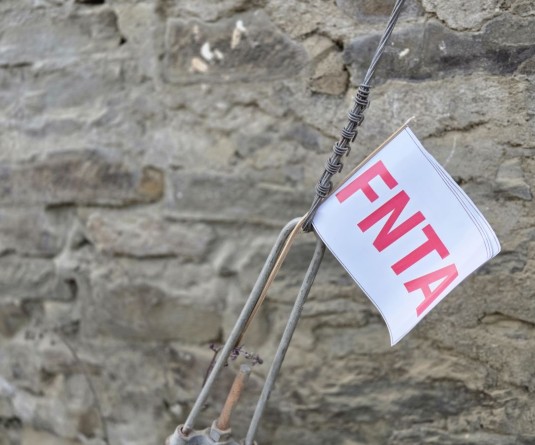
“Postponement of exam will not root out corruption”
Chizokho Vero, Journalist
If the question is posed before the aspiring candidates, then there should be no third opinion on this as NPSC candidates have in clear terms made the point that the scheduled Nagaland Civil Service (NCS) Exams conducted by the Nagaland Public Service Commission (NPSC) should remain on schedule. Aspiring candidates have been unanimous that the scheduled examinations of NPSC on August 20 should remain as it is and stood against postponement again in any manner.
When the NSF took a stand on July 19 to initiate the current agitation in response against discrepancies existent within the NPSC, many observers had hailed it as a natural assertion of right to force transparency and institutional justice from a corrupt system and in the process, cleanse it. However, with the stretch of agitation threatening to eclipse the already set schedule of examinations, namely the Main Examinations to be held on August 20, the selected candidates for the Mains in particular have expressed apprehension over the uncertainty of the NSF’s current agitation.
The NPSC-NSF stand off continue with no sight of an agreement between the two parties. The apex students’ body took the stand that the NPSC was not giving a ‘positive response’ to their demand over the bribery case. The NSF said it would continue the protest until the commission responded to the demands in totality. While acknowledging the efforts of volunteers in the fight against injustice, nepotism, favouritism and corruption in the State the student leader appealed to members to be prepared for any eventuality.
It may be mentioned that the NSF in its ultimatum, which expired on July 15, had asked the NPSC to suspend officials who were under scrutiny by the investigating authority, tender public apology as well as to issue proper clarification on the mistakes detected on those questions papers, which the NPSC had earlier marked as correct and to make clarification to the public as to why only 36 out of 74 candidates who fell two marks short of the cut-off marks after scrutiny, were picked up for the mains examination thereby depriving the rest who secured equal marks.
The ongoing agitation of the Naga Students Federation (NSF) and the scandal in the NPSC have put the candidates into a dilemma as they fear the prospect of further postponement if the present impasse continues. The general feeling among candidates is that they have nothing to do either with the NPSC or the ongoing agitation launched by the NSF, but they want the exam to be held as scheduled. As reported earlier the candidates have been disturbed emotionally and physically. They feel that they gave been victimized for no fault of their. To their credit, the few candidates who could come together have met several times among themselves to put pressure on the Government and make sure that the exams are not pushed further anymore from the date fixed ie August 20. Further postponement will only hurt the sentiments of hardworking candidates some of whom I know have gone through untold hardships for no fault of theirs. While I am not trying to condone the corruption unearthed within the NPSC, anymore delays could disturb the recruitment process into various services. This is more so as administrative task must continue in order to make sure that government services do not suffer. The job of recruitment must therefore not be stalled particularly with regard to the top state services. After all administrative positions must be manned if the State has to provide welfare services to the common people. Due to the ongoing agitation, the NPSC postponed the recruitments of graduate/undergraduate Hindi teachers written exanimation scheduled for July 23 till further orders.
Interestingly, some of the students had suggested that an Ad-hoc commission be set up to conduct the examination. I think this is one option which the State Government must consider. Having an Ad-hoc Commission will serve the purpose of not only cleansing the present NPSC system but at the same time allow the crucial exams to be conducted. At a later stage if need arises the ad-hoc commission can also be upgraded into a full fledged recruitment agency. In the meantime the state government could set by a Reforms Commission which will go into the entire aspect of civil service recruitment. Based on the findings, the NPSC can be re-structured to face the rigors of day to day recruitment.
Top ranking officials of the NPSC have already reiterated its earlier stand that the commission would go ahead with the Nagaland Civil Service (NCS) Mains examination on August 20 as scheduled.
Further, in order to give legitimacy to their demand NCS candidates recently submitted a memorandum to Governor Shyamal Datta demanding the NCS exams be held on August 20 as scheduled.
While welcoming the process of rooting out corruption prevalent in the Commission’s office, the plight of aspiring candidates should be taken into account by the concerned authorities and student’s body. The frequent and abrupt change of examination schedule has affected our enthusiasm in many ways and there appears to be growing resentment over the issue particularly from those candidates coming from outside the State to appear for the exams. One cannot blame the young men and women if they are apprehensive. If exams are indeed deferred again, most candidates would feel demoralized.
It is hoped that both the NPSC and NSF talk to each other rather than talking at each other. It was a good sign to see both the two parties mellowing down their stands. The NPSC has partially met with the NSF demands while the latter deferred its second phase of agitation which was to begin on August 4. The mediation from the government’s side and the recent communiqué issued by the Chief Secretary should be welcomed as the next step towards resolving the standoff. As for the exams, it would be advisable to go ahead with it.
“Freeze all exams, first frame a transparent and accountable process of recruitment”
V. Phushika Aomi, President, Naga Students’ Federation
The Naga society as a whole has undergone an increase in material prosperity while at the same time facing a decline in major aspects of the quality of life: increasing stress in the society due to unending political conflict and militarization, a widening gap between rich and poor, continuing environmental denudation and a debasement of culture through swift commercialization that changed the values and expectations of Nagas. Riding on political instability and degeneration of social institutions is the scourge of corruption.
The younger generations of Nagas under the platform of the Naga Students Federation (NSF) are at the moment constructively engaged in addressing one of the major irritants of our society – corruption needs immediate attention for the sake of the generations to come. The consecutive resolutions of the Federal Assembly and the Presidential council meetings of the Naga Students Federation in the past months has endorsed that ‘Corruption on all fronts’ must be challenged in the larger interest of future generations.
It has become apparent that money politics has dangerously become a major threat to the security and cohesion of the Naga society. Accusation of impropriety and criminal activity has dogged the recent NPSC scam which has led to the engagement of NSF with the same. There has been a widespread feeling of despondency among the many concerned and educated Nagas when the primary institution responsible for overseeing the development of future Naga administrative leaders is under a cloud of doubt in the face of emerging evidence that questions the very heart of the institution. Our society is today faced with a serious threat from self-annihilation due to rampant debasing of our socio-cultural ethos and spiritual values with the emerging changes from the process of so called ‘growth’ and modernization. This growth process has been accompanied by a pervasive culture of violence, parochialism, consumerism and corruption which threatens to create further social chaos and political instability unless timely arrested.
Money politics is evil, anti-democratic and unsustainable in the long run, as well as unlawful. This negative culture will infiltrate into every sphere of governance seeking to control while undermining the democratic voice of the people. And in turn this system will make a complete mockery of the law and the economy promoting a culture of dependency, corruption, patronage, nepotism eating into the vital fibers of Naga society.
The current debate on whether the NPSC exams should be conducted as scheduled or postponed until the scandalous bribery case is resolved may remains contentious.
Under money politics, decision making on the basis of merit, employing rational criteria, can hardly find its rightful place. The credibility of the state public service commission has been tarnished with the findings of the vigilance department and the eventual decision of the state government to suspend the officials on whom charges are framed for the mal-practices detected. The general public may wonder as to how long these malpractices must have prevailed within the NPSC? The exposure of the case has led to the students’ federation taking a more principled stand to struggle against all sorts of corruption within the public realm. Besides many consequential events have sprouted up from the abyss and is taking away the persistent primary focus of the case under public scrutiny. The students’ community initiatives have been hampered by many undercurrents which are detrimental for the larger interest of the future Naga generations. Besides the focal issues of corruption, many tendencies of divisive nature were spurned around it trying to derail the campaign. NSF and its constituent unit however has resolutely stood behind the present leadership demolishing the barriers of misinformation and distraction of the threat of spilling the ‘ism’ on the level of tribes and regions. NSF must continue in its principled stand that it has no ulterior agenda against any individual personality but is struggling to uproot the all-encompassing corrupting system which has become a real threat to the Naga society.
The unrestrained growth of corruption can undermine the sustainability of the political system and even the governability of the system - because money politics abhors the rule of law, transparency, and accountability; and because it fails utterly to promote high standards of decision making, which are all requirements for good governance, sustainable development and the pursuit of a genuine quality of life.
Until such time when the proper investigation report is released for public scrutiny and authentication thereof, the NPSC continuing to conduct examinations under current circumstance will neither be beneficial to the individual aspirants, since the process of selection and administrative personnel’s under whom the controversy rages are not fully cleared. Any attempt to hold the exams under the existing controversy will raise doubts over the authenticity of the process. It will be the public who will be most affected in the event of the NPSC absorbing new cadres whose proficiency and capacities are screened through a popularly agreed and established norms and criterias of selection.
Therefore the NSF insist that a moratorium of all examination be declared until a time when a transparent and accountable process of examination for selecting NPSC cadres are framed and established wherein space for the present causes of misadventure by public servants are reduced to the minimal and further contained altogether in the interest of justice.
To hold the NPSC exams in a climate of mistrust, corruption and ongoing investigation for embezzlement violates all ethical norms of democratic and responsible conduct; and it will only be in the fairness of all – including the aspiring candidates – to first rectify the prevailing ills; less they too fall victim to a corrupt system.





